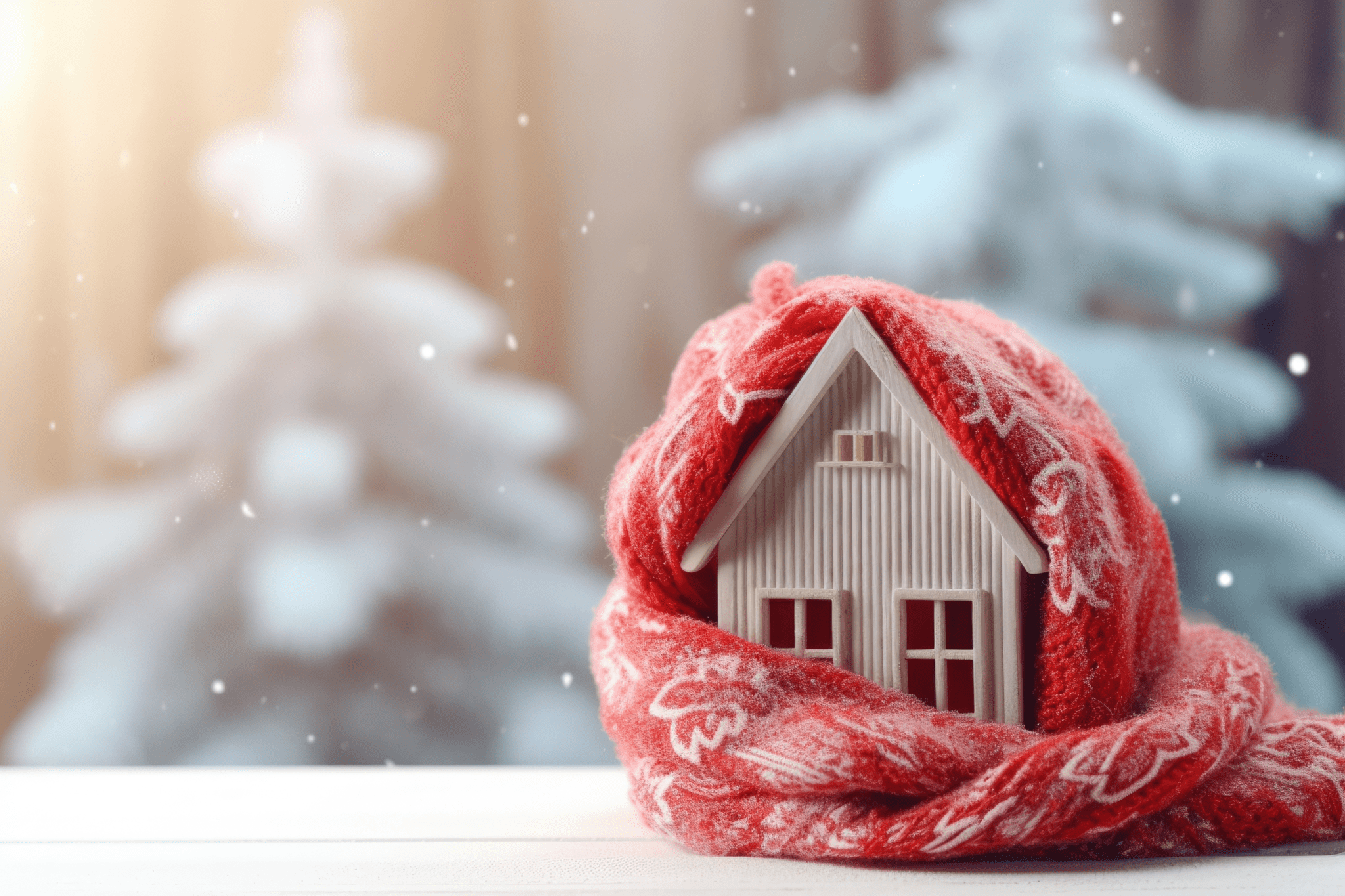
Protecting Your HVAC System in the Winter
New York winters are beautiful, with fresh snowfall creating a winter wonderland. However, upstate New York winters also bring freezing temperatures, strong winds, and heavy snow, making daily life challenging.
When shoveling snow and dealing with icy roads, keep in mind that winter weather can also damage your heating and cooling system. Thankfully, with Appolo and these tips, you can protect your HVAC system and keep it running smoothly all seasons.
Common Causes of HVAC System Damage and How to Prevent Them
Snow and Ice Buildup
An air conditioning system or heating system requires proper airflow to function efficiently. Snow and ice buildup around outdoor units can block ventilation after a storm, which may damage the coils or blades.
Additionally, excessive buildup can act as an insulating layer, preventing proper heat exchange and reducing the system’s efficiency. This can force the unit to work harder, increasing energy consumption and potentially leading to overheating or shutdown. Frequent ice buildup can damage important parts, leading to problems like refrigerant leaks, motor failures, and rust over time.
Prevention: After a storm, clear any snow or ice around your outdoor unit. Ensure that there is ample space around the system for proper air circulation and that no obstructions block heat exchange.
Safe Ice Removal Methods:
- Use a Soft Brush or Broom: Gently sweep away loose ice or snow. Avoid using sharp tools that could puncture coils or fins.
- Allow the System’s Defrost Cycle to Work: Many modern heating and cooling systems have built-in defrost functions. If ice builds up, let the unit cycle through defrost mode before taking further action.
Signs Your HVAC System May Be at Risk from Winter Conditions
Recognizing early warning signs can prevent costly repairs and ensure constant comfort. Indicators that your HVAC system may be vulnerable to winter-related damage include:
- Inadequate Heating: If your system can’t keep the right temperatures, it might be because of blocked vents from snow and ice or broken parts.
- Unusual Noises: Sounds such as grinding, banging, or squealing can signal mechanical problems intensified by cold weather.
- Frequent Cycling: Rapidly turning on and off may indicate thermostat issues or airflow obstructions, potentially caused by ice buildup.
- – Your energy bills can increase rapidly.
- – This can happen if your system has issues or blockages.
- Ice on the outdoor unit can hurt performance. If not fixed quickly, it may cause long-term damage.
Keeping Your HVAC System in Peak Condition
Winter-proofing your HVAC system requires a combination of preparation and professional maintenance. Consider these additional measures:
- Use a Central AC Cover: Protect your outdoor air conditioning system when not in use. This easy step can protect it from winter weather, stopping debris buildup and possible damage from snow or ice. Regularly Inspect and Clean Filters: Clogged filters can restrict airflow, making your system work harder.
Check and replace filters every one to three months to ensure optimal performance. Schedule yearly maintenance: An Appolo technician should check your HVAC system once a year. This can help find issues before they become problems. They can clean components, check refrigerant levels, and ensure everything functions efficiently.
- Seal Ducts and Insulate: Leaky ducts can lead to significant energy loss. Sealing gaps and adding insulation can help maintain the temperature in your home and reduce energy costs.
- Keep Vents Clear: Ensure furniture, curtains, or other objects do not block air vents. Proper airflow is essential for maintaining a comfortable indoor environment.
- Monitor Thermostat Settings: Consider upgrading to a programmable thermostat that can adjust temperatures based on your schedule. This can help save energy and keep your home comfortable without unnecessary strain on your HVAC system.
Taking these steps can make your HVAC system work better, save on energy costs, and help your equipment last longer. Regular maintenance and attention to detail will ensure your home remains warm and comfortable throughout winter.
- Regular Maintenance with Appolo Heating: Routine maintenance is essential to prolonging the life of your heating and cooling system. Our expert technicians perform thorough inspections, ensuring optimal performance, energy efficiency, and long-term reliability.
What Maintenance Services Does Appolo Heating Provide?
To ensure your HVAC system operates efficiently throughout the winter, Appolo Heating offers comprehensive maintenance services. Our experienced technicians offer maintenance and cleaning services for furnaces, boilers, heat pumps, and air conditioners.
These services help spot and fix any problems early on, which prevents larger issues from developing. This proactive approach ensures that your home stays warm and cozy when it gets cold outside.
Regular maintenance is important. It helps maintain your heating and cooling systems working well. This can prevent breakdowns and high energy bills.
Long-Term Benefits of Regular HVAC Maintenance with Appolo Heating
Engaging in regular maintenance with Appolo Heating offers several advantages:
- Enhanced System Efficiency: Routine tune-ups ensure all components function optimally, leading to consistent and efficient heating.
- Extended Equipment Lifespan: Proactive care reduces wear and tear, prolonging the life of your HVAC system.
- Priority Service: As a Priority Customer Service Agreement holder, you receive top priority for scheduling and emergency services, ensuring prompt attention when needed.
- Cost Savings: Regular maintenance helps prevent major breakdowns, reducing the likelihood of expensive repairs.
- Safety Assurance: Technicians can detect and rectify potential hazards, such as carbon monoxide leaks, ensuring your home’s safety.
For more information about our maintenance plans, visit our Priority Customer Service Agreements page. This will help ensure your comfort all year.
Why Choose Appolo Heating?
At Appolo Heating, we understand how crucial a reliable heating or cooling system is, especially during extreme cold weather. Our team provides expert maintenance services, helping you avoid costly repairs while keeping your home comfortable and energy efficient.
Count on us for quality HVAC service, no matter how much snow falls this winter. Stay warm and worry-free—schedule your HVAC maintenance with Appolo Heating today!
